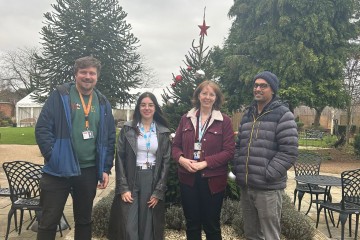Strategic grant
Characterisation of antibodies and affinity reagents to promote the adoption of robust and reproducible non-animal reagents

At a glance
Completed
Award date
October 2024 - March 2025
Grant amount
£99,996
Principal investigator
Dr Harvinder Virk
Co-investigator(s)
Institute
University of Leicester
R
- Replacement
